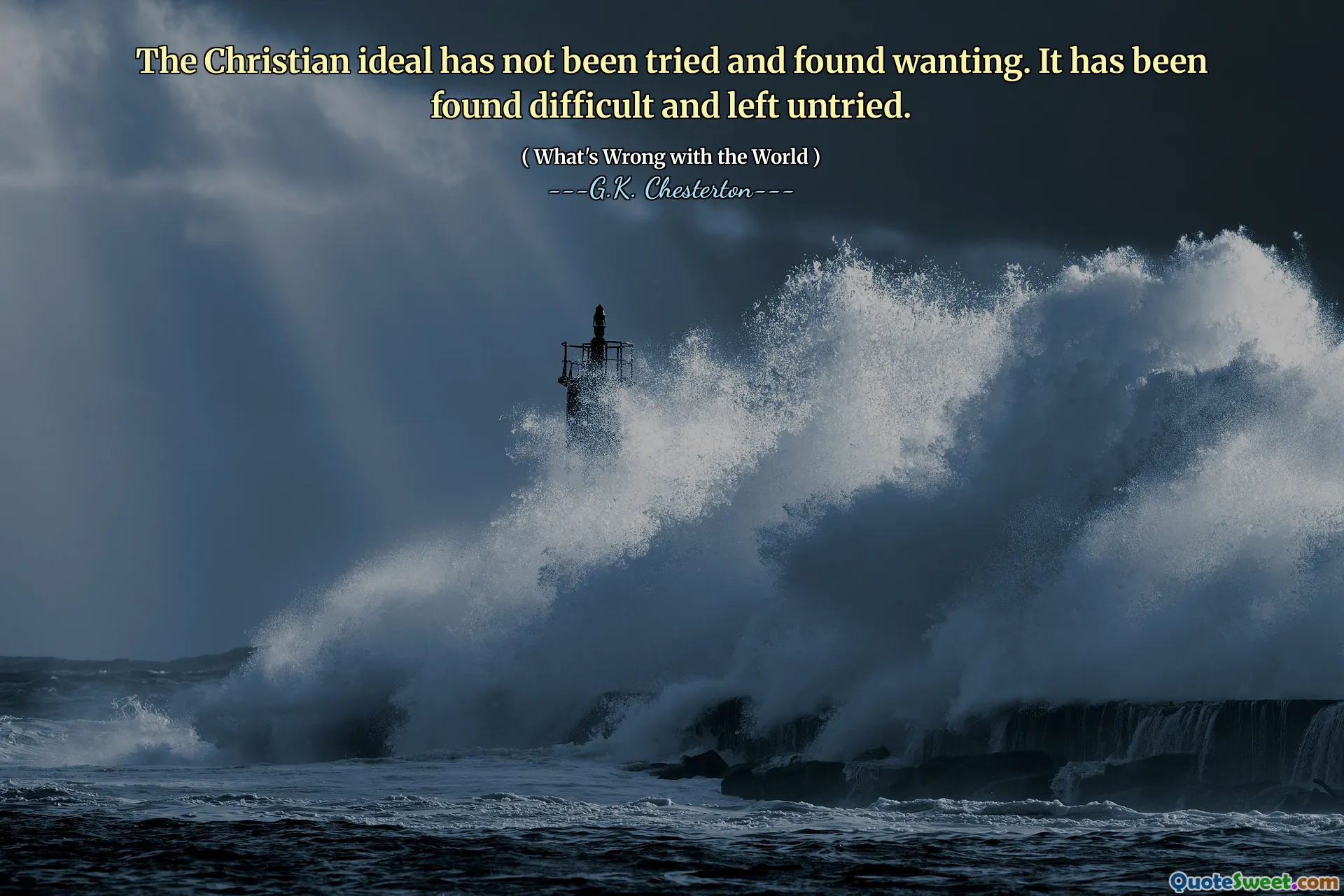
The Christian ideal has not been tried and found wanting. It has been found difficult and left untried.
This quote by G.K. Chesterton invites us to reconsider our assumptions about morality and virtue. Often, society criticizes the challenges of living according to high moral standards, suggesting that the ideals are impractical or unattainable. However, Chesterton flips this perspective, implying that the real issue is not that these ideals are flawed or impossible, but that they have not been genuinely attempted due to their difficulty. In our daily lives, enduring moral tests require profound commitment, discipline, and sometimes sacrifice. Many shy away from these because the journey demands more than superficial effort; it demands genuine change, which can be intimidating. By labeling these principles as 'difficult,' society sometimes dismisses them instead of embracing the challenge to meet them. The quote encourages us to recognize that the true value of moral ideals, whether Christian or otherwise, lies in their potential to elevate human character—something that cannot be achieved without effort. It also prompts a reflection on human nature: are we willing to confront the discomfort involved in moral action? Or do we prefer the comfort of progress without striving? Chesterton’s insight is a call to courageous pursuit—a reminder that the greatest virtues are often the most demanding but also the most rewarding. It challenges us not to judge ideals based solely on their difficulty but to see the worth in striving toward them, understanding that true greatness arises from effort, perseverance, and honest attempts at self-improvement.






